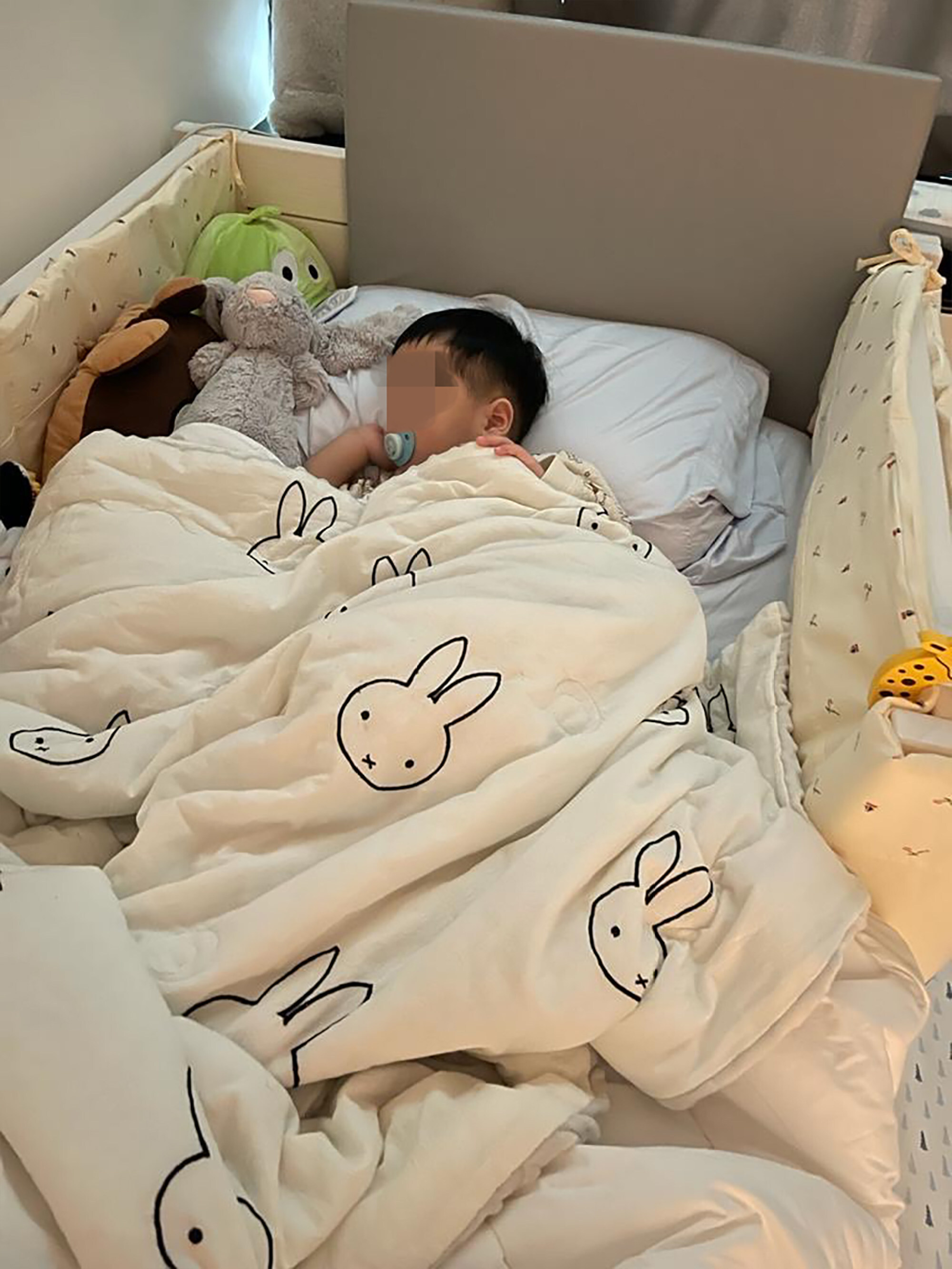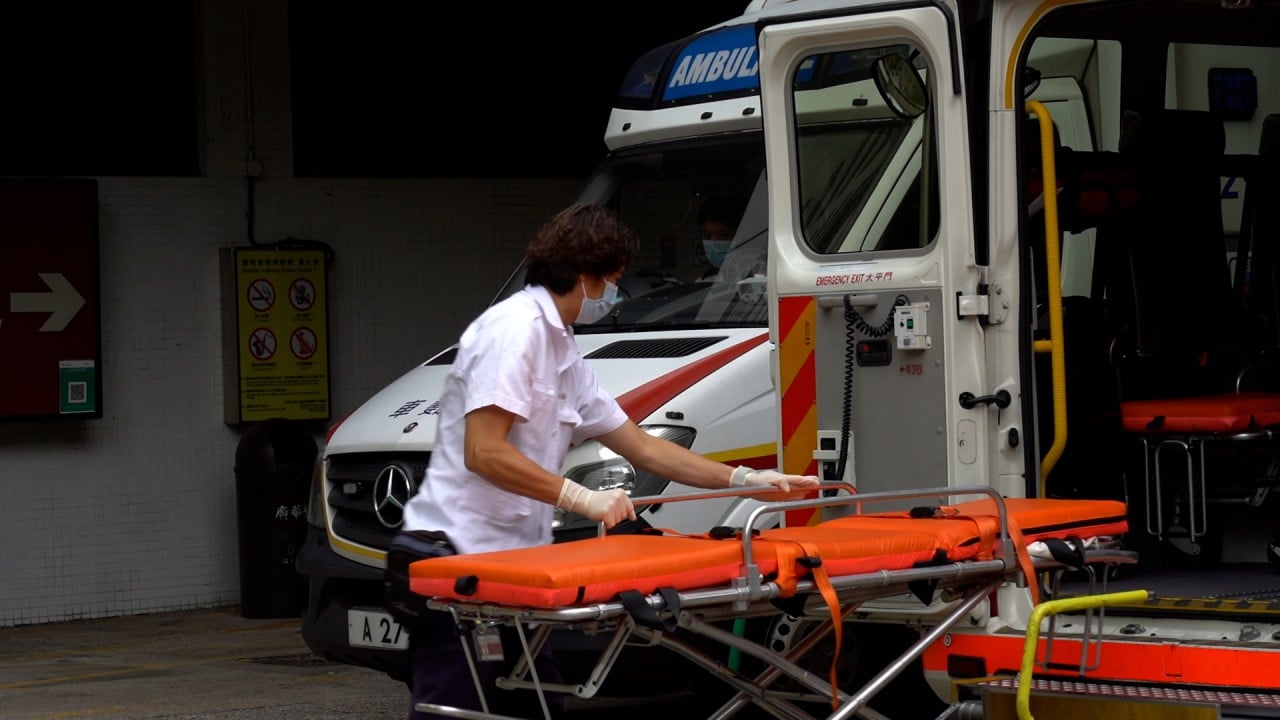
‘My son started coughing’. Hongkongers forced to wait days for help as hospitals struggle to cope with rising coronavirus cases
- About 10,000 residents who tested positive for Covid-19 have been waiting at home for hospital treatment as of Monday
- Isolation beds specially designed for children are full, according to health authorities
But the pair were forced to return home and wait for further notice because no hospital beds were available.
Two days later, Lam, who only wished to be identified by her surname, also tested positive for Covid-19 after using a rapid antigen test.
Her husband later became the only member of the family to not be infected. To stop him from getting sick, they followed a government adviser’s proposal of “reverse isolation” and placed him in one room.
According to an estimate from the Post, the family are among the 10,000 residents who have tested positive and are waiting for hospital treatment as of Monday. Overwhelmed by the exponential growth of cases, Hong Kong’s public health care system is struggling to cope.
Many parents were left alarmed by reports of a four-year-old boy’s death last Friday, who had tested preliminary-positive for the coronavirus and a three-year-old girl without any severe medical history who was in critical condition on Monday.
Isolation beds specially designed for children have filled up, but health authorities have said that youngsters would be prioritised for hospital treatment, with some adult beds to be made available for them.
Living in an 800 sq ft flat in Yau Tsim Mong district, Lam told the Post that her son had developed symptoms of Covid-19 after her domestic helper tested positive last Thursday.
“My helper went to Queen Elizabeth Hospital and was told that she would have to undergo home isolation,” Lam said. “The next day, my son started coughing, with a fever of 39.7 degrees [Celsius].”
At around 3am on Saturday, Lam called the ambulance after her son had trouble breathing. The infant was sent to Queen Elizabeth Hospital to have nasal and throat swab samples taken for a Covid-19 test.
“The doctor said there were no beds in hospital and asked us to go home,” Lam said, adding that oxygen levels in her son’s blood had at one point dipped to 95 per cent, with readings below 90 per cent signalling a clinical emergency.
“I received a call at around 1pm from the hospital saying my son had tested positive for the virus and we had to wait for further notice from the Centre for Health Protection (CHP),” Lam said.
“But two days have passed and still no one has contacted us nor told us about the home isolation arrangement,” she said at the time of the interview.

At present, close contacts of Covid-19 patients can isolate at home as part of government efforts to reduce pressure on quarantine facilities, with health authorities saying they would take measures such as assessing the suitability of homes for quarantine and providing electronic wristbands with a tracking app.
But Lam said that she had received nothing from the authorities at the time, including an order of quarantine, despite two cases having been reported among her family.
Unable to leave their home, the household had relied on delivery services and other family members to keep them stocked up on groceries.
One security guard at her building had sympathised with the family’s situation and offered to help run errands, such as disposing of any trash bags they left in front of their door.
“I am so disappointed with the government. Everything is so poorly arranged. I called the CHP hotline multiple times but it’s always busy,” the mother said.
“I have been worried about my baby’s situation for days. My husband and I took turns taking care of him without sleep because we fear that he might be out of breath suddenly,” she said. “At the same time, I also have to take care of my helper.”
Lam added that her son continued to have a fever of 40 degrees until Sunday, despite taking medication. The child later developed a rash and saw his temperature drop to between 34.5 to 35.5 degrees.
A few hours after her interview with the Post on Monday evening, Lam said she had received a call from the authorities saying that an ambulance was coming to pick up her baby but she and her helper would not be able to go with him.
Dr Sara Ho Yuen-ha, chief manager at the Hospital Authority said on Monday that patients in need of care would be sent to other treatment facilities to reduce the number of people requiring hospital beds.
“We have extended our admission of paediatric cases to different units and flexibly deployed our staff with paediatric experience to take care of those in need.”
“That’s why we have paediatric cases not only in hospitals but also in community therapeutic units like HKICC [North Lantau Hospital Hong Kong Infection Control Centre] and also Penny’s Bay,” she said.
But Patients’ Rights Association spokesman Tim Pang Hung-cheong said that more guidelines should be provided to people caring for anyone undergoing home isolation.
“We understand that the number of hospital beds cannot be increased in a short period of time but hospitals and departments should tell parents how to take care of sick children and provide a 24-hour hotline to reassure them,” he said.
Pang said that all patients should be provided with a kit bag, which would include essential medications and a pulse oximeter for checking oxygen levels in a person’s blood.
“The device is not expensive and it’s a way for home isolators to determine if their situation has worsened and need emergency help,” he added.


